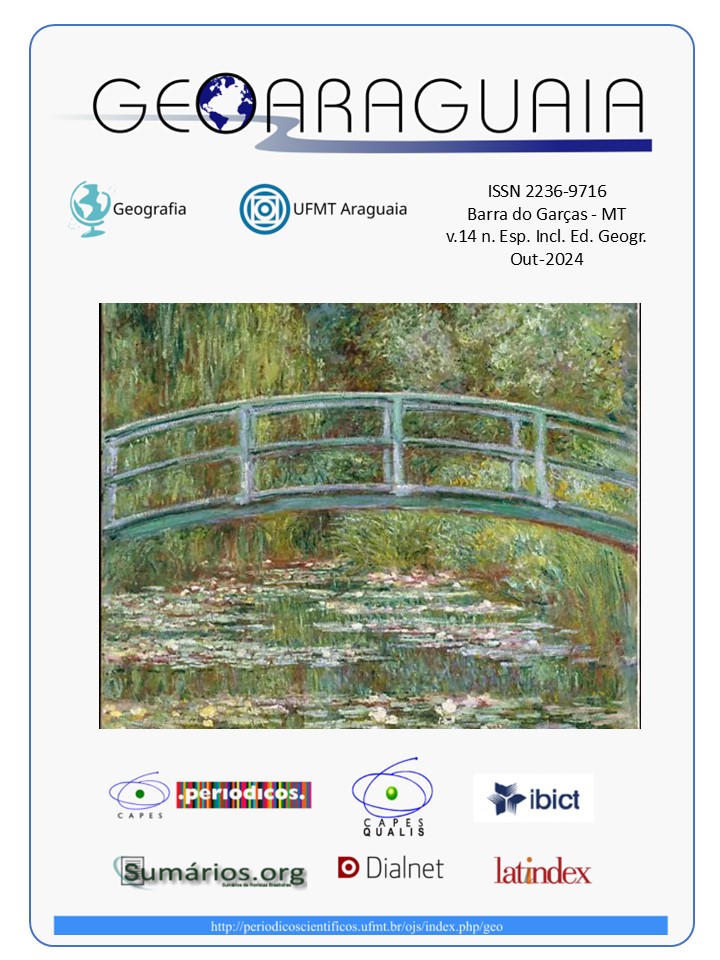Ressignificando as representações cartográficas do Laboratório de Cartografia Tátil Escolar – LABTATE
Keywords:
Mapas Táteis, Deficiência visual, Impressora 3DAbstract
REDESIGNING THE CARTOGRAPHIC REPRESENTATIONS OF THE SCHOOL TACTILE CARTOGRAPHY LABORATORY – LABTATE
Tactile maps are resources in cartographic science used in education and spatial mobility for visually impaired individuals. In line with this science, this work aims to present a new methodology for creating tactile maps in education using rapid 3D prototyping with liquid resin, redefining tactile geographic symbols used in the research conducted at the Tactile Cartography Laboratory (LabTATE) of the Federal University of Santa Catarina. The cartographic representations were developed and produced by the lab team using only handmade materials and microcapsulated paper. However, the cartographic representations produced at LABTATE to date are reproduced using a theoretical, methodological, and scientific framework for crafting handmade tactile maps for visually impaired individuals. This research was submitted to the Brazilian platform and approved under Approval Number: 6,327,035. This research is classified as qualitative/action research, in which the materials used for production included a 3D printer with a Liquid Crystal Display (LCD) and ultraviolet lamps. Fusion 360 from Autodesk was used for generating 3D symbols. The resin used in this printer is photopolymer in opaque white rigid form. The symbols were painted with specific paint using appropriate brushes for this product. Pre-testing of the symbols was conducted with visually impaired students to validate the methodology employed.
Keywords: Tactile Maps; Visual impairment; 3d printer.
Downloads
Published
How to Cite
Issue
Section
License
A Revista Geoaraguaia poderá solicitar alterações de ordem normativa, ortográfica e gramatical, com vistas a manter o padrão culto da língua. Se necessário, alguns ajustes normativos podem ser feitos pela revista, porém respeitando o estilo dos autores.
As provas finais não serão enviadas aos autores.
As opiniões emitidas pelos autores dos artigos são de sua exclusiva responsabilidade.





 A revista
A revista